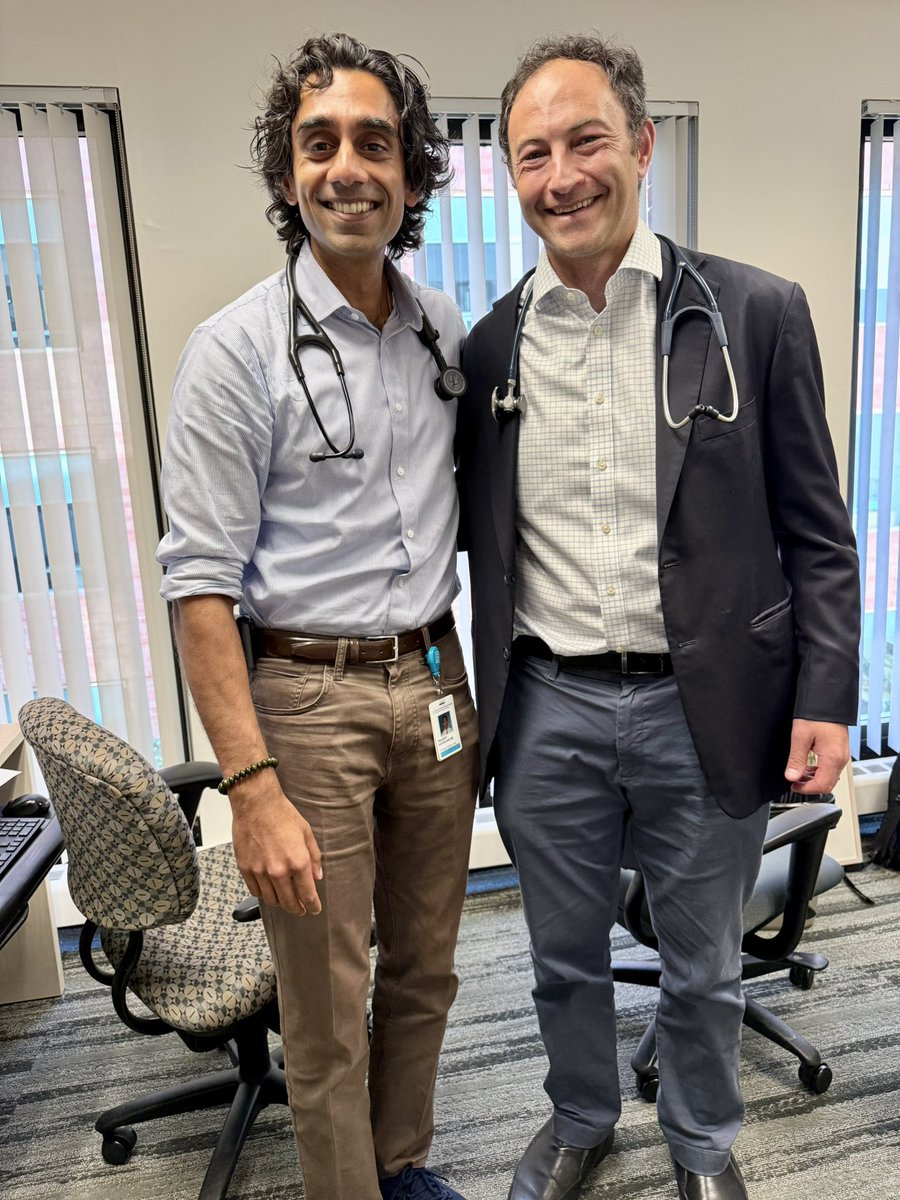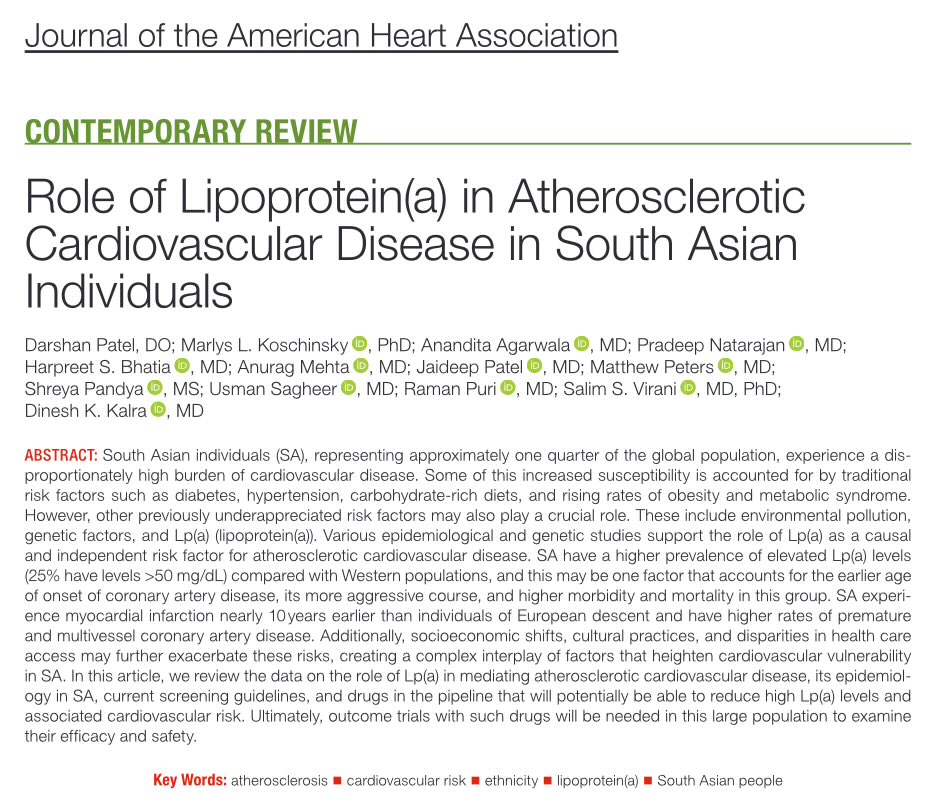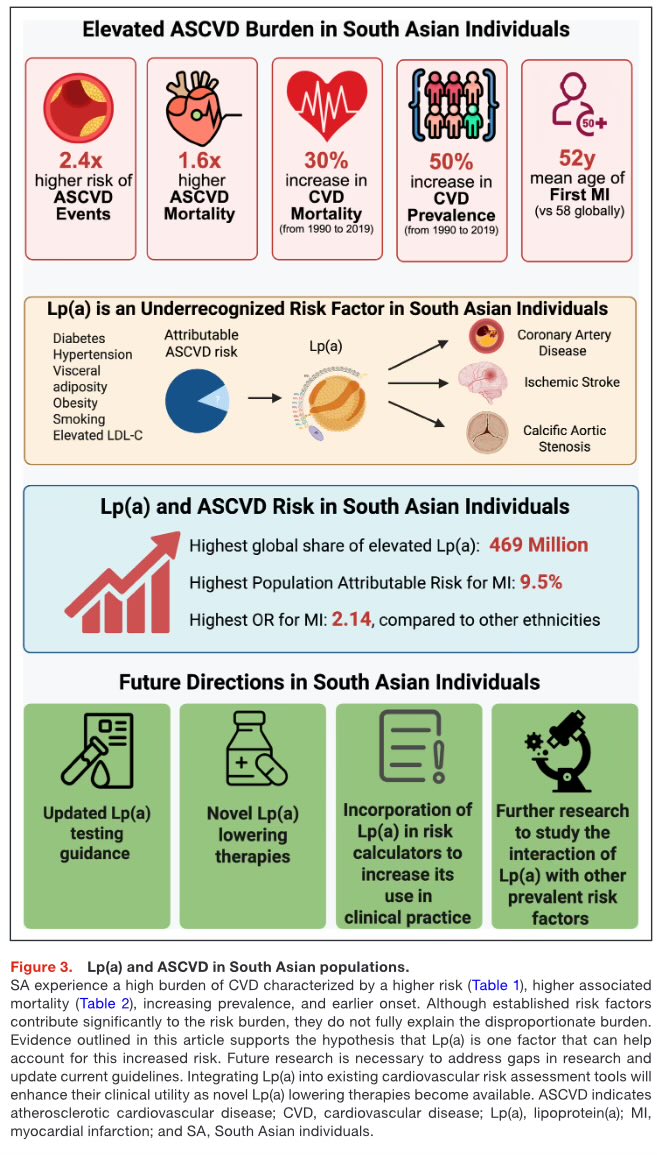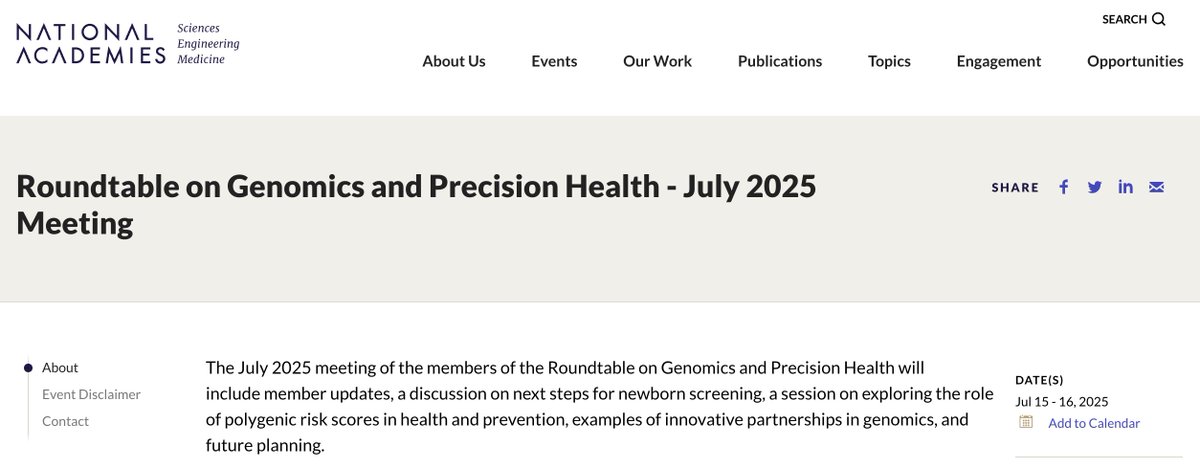
Pradeep Natarajan
@pnatarajanmd
Dir of Prev Cardiology @MassGeneralNews | Assoc Dir of Personalized Med @MassGenBrigham | Assoc Prof @harvardmed @HarvardChanSPH | Assoc Mem @broadinstitute
Looking forward to a new position as Director of Interventional Cardiology at Mass General Brigham. With incredible colleagues throughout the system, we will build the most comprehensive IC program internationally.
Congrats to R. Loos, J. Hirschhorn, & colleagues developing a new polygenic risk score for obesity. Very interesting that it predicts response with weight loss across 2 lifestyle intervention RCTs nature.com/articles/s4159… @NatureMedicine My comments in @nytimes…

Last clinic for @blumenthalDM1 at @MGHHeartHealth! Tremendous colleague, physician-executive, and friend. @MassGeneralNews

Why do some genetic mutations devastate specific tissues while sparing others? We explore this question in GGC repeat disorders, revealing a mechanism linking protein aggregation to tRNA splicing failure in the brain. 🧵 on our new paper in Science: 🔗 science.org/doi/10.1126/sc…
The anti-inflammatory power of semaglutide (Ozempic) seen by its normalization to healthy of a 72 protein signature tied to MASH liver disease nature.com/articles/s4159… @NatureMedicine
👀
I’ve started taking pictures of nearly every meal I eat to feed into a multimodal AI doctor that has context on my wearable, how I’m feeling, blood work, meds/supplements, genome variants interpreted with a reasoning model, etc It’s a very hacky prototype now but I’m surprised…
Delighted to contribute to this review spearheaded by D. Patel & @DineshKalra on lipoprotein(a) among South Asian individuals ahajournals.org/doi/10.1161/JA… @JAHA_AHA @ourhealthstudy


PREVENT Risk Calculator’s Accuracy Varies by Healthcare System, Patient Factors dlvr.it/TM0JW6
Thank you @TCTMD for covering our PREVENT validation efforts across @MassGenBrigham @MountSinaiNYC @PennMedicine @VUMChealth collaboration by @pnatarajanmd @DoGenetics @damrauer @qswells
PREVENT Risk Calculator’s Accuracy Varies by Healthcare System, Patient Factors dlvr.it/TM0JW6
Delighted to share an updated review and our perspectives on clonal hematopoiesis and cancer in @NatureCancer in collaboration with Xiurong Cai and Bobby Bowman: rdcu.be/ewN62
Great summary by @hmkyale on the @JACCJournals Podcast on discrimination vs calibration & key implications jacc.org/do/10.1016/ecd…
An absolute risk generalizable risk calculator is challenging. Led by @somijemmacho, evaluating AHA PREVENT across 4 academic health systems, we found similar discrimination but variable calibration. A universal absolute risk threshold may not suitably guide.…
Clonal hematopoiesis (CH) is when blood cells carry mutations. It’s common with age—and sometimes a warning sign for cancer. But not all CH is equal. Why do some people progress, and others don’t? Check out @KellyLBolton’s excellent thread and our paper here @NatureGenet 👇
Germline genetic variation has been linked to both hematologic cancer and clonal hematopoiesis. But does germline variation influence the likelihood of CH progressing to cancer? And if so, why? We tackle these questions here in @NatureGenet nature.com/articles/s4158…
Dr RR Baliga’s “Got Knowledge Doc?” Podkast 📊 Polygenic Risk Scores, 💉 Biomarkers, ❤️ Prevention: A New Era in CAD P... youtu.be/u2_QrYQ6PlQ?si… @Circ_Gen @pnatarajanmd @NYTHealth @WSJhealth #MedEd #Cardiology #CardioEd #CardioTwitter #MedTwitter @DeccanHerald @doximity
Big news from @ASPCardio 🫀 Dr. @khurramn1 is named the next Editor-in-Chief of the American Journal of #PreventiveCardiology @AJPCardio, starting Jan 2026. A visionary leader in prevention, he’ll help shape the future of the field. prnewswire.com/news-releases/…
Honored to join @theNASEM Roundtable on Genomics and Precision Health today, exploring the role of polygenic risk scores in health and prevention nationalacademies.org/event/45401_07…

Really important work that will be even more important as the PREVENT is going to soon be in guidelines as the new standard for risk assessment. #CVprev Unfortunately most don’t even get risk assessment 💔
Most studies on clinical utility of exome sequencing in intensive care focussed on pediatric patients. In a new study in AJHG, the authors assessed diagnostic value of exome sequencing in critically ill adult patients and found a surprising 24% diagnostic yield, many with…